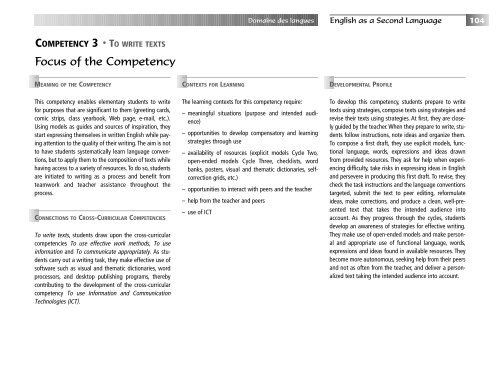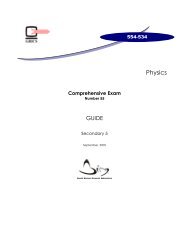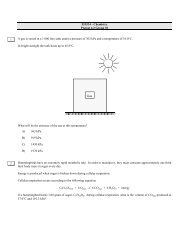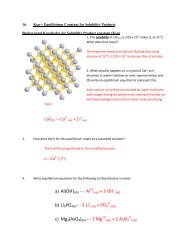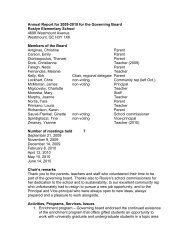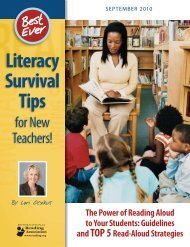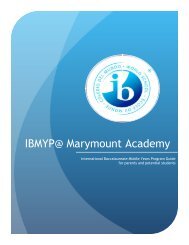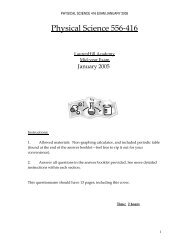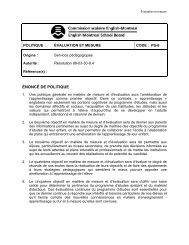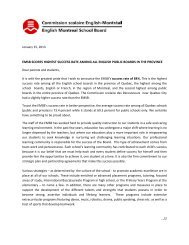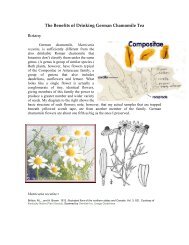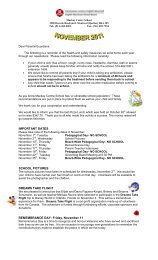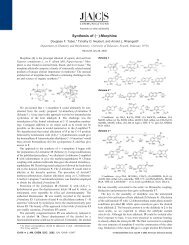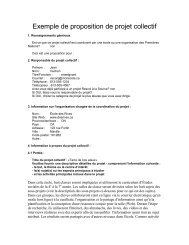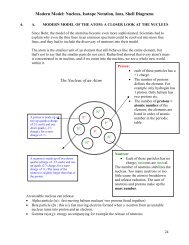Programme de formation de l'école québécoise - Version approuvée
Programme de formation de l'école québécoise - Version approuvée
Programme de formation de l'école québécoise - Version approuvée
You also want an ePaper? Increase the reach of your titles
YUMPU automatically turns print PDFs into web optimized ePapers that Google loves.
Domaine <strong>de</strong>s langues<br />
English as a Second Language 104<br />
COMPETENCY 3 • TO WRITE TEXTS<br />
Focus of the Competency<br />
MEANING OF THE COMPETENCY<br />
CONTEXTS FOR LEARNING<br />
DEVELOPMENTAL PROFILE<br />
This competency enables elementary stu<strong>de</strong>nts to write<br />
for purposes that are significant to them (greeting cards,<br />
comic strips, class yearbook, Web page, e-mail, etc.).<br />
Using mo<strong>de</strong>ls as gui<strong>de</strong>s and sources of inspiration, they<br />
start expressing themselves in written English while paying<br />
attention to the quality of their writing. The aim is not<br />
to have stu<strong>de</strong>nts systematically learn language conventions,<br />
but to apply them to the composition of texts while<br />
having access to a variety of resources. To do so, stu<strong>de</strong>nts<br />
are initiated to writing as a process and benefit from<br />
teamwork and teacher assistance throughout the<br />
process.<br />
CONNECTIONS TO CROSS-CURRICULAR COMPETENCIES<br />
To write texts, stu<strong>de</strong>nts draw upon the cross-curricular<br />
competencies To use effective work methods, To use<br />
in<strong>formation</strong> and To communicate appropriately. As stu<strong>de</strong>nts<br />
carry out a writing task, they make effective use of<br />
software such as visual and thematic dictionaries, word<br />
processors, and <strong>de</strong>sktop publishing programs, thereby<br />
contributing to the <strong>de</strong>velopment of the cross-curricular<br />
competency To use In<strong>formation</strong> and Communication<br />
Technologies (ICT).<br />
The learning contexts for this competency require:<br />
– meaningful situations (purpose and inten<strong>de</strong>d audience)<br />
– opportunities to <strong>de</strong>velop compensatory and learning<br />
strategies through use<br />
–availability of resources (explicit mo<strong>de</strong>ls Cycle Two,<br />
open-en<strong>de</strong>d mo<strong>de</strong>ls Cycle Three, checklists, word<br />
banks, posters, visual and thematic dictionaries, selfcorrection<br />
grids, etc.)<br />
– opportunities to interact with peers and the teacher<br />
– help from the teacher and peers<br />
– use of ICT<br />
To <strong>de</strong>velop this competency, stu<strong>de</strong>nts prepare to write<br />
texts using strategies, compose texts using strategies and<br />
revise their texts using strategies. At first, they are closely<br />
gui<strong>de</strong>d by the teacher. When they prepare to write, stu<strong>de</strong>nts<br />
follow instructions, note i<strong>de</strong>as and organize them.<br />
To compose a first draft, they use explicit mo<strong>de</strong>ls, functional<br />
language, words, expressions and i<strong>de</strong>as drawn<br />
from provi<strong>de</strong>d resources. They ask for help when experiencing<br />
difficulty, take risks in expressing i<strong>de</strong>as in English<br />
and persevere in producing this first draft. To revise, they<br />
check the task instructions and the language conventions<br />
targeted, submit the text to peer editing, reformulate<br />
i<strong>de</strong>as, make corrections, and produce a clean, well-presented<br />
text that takes the inten<strong>de</strong>d audience into<br />
account. As they progress through the cycles, stu<strong>de</strong>nts<br />
<strong>de</strong>velop an awareness of strategies for effective writing.<br />
They make use of open-en<strong>de</strong>d mo<strong>de</strong>ls and make personal<br />
and appropriate use of functional language, words,<br />
expressions and i<strong>de</strong>as found in available resources. They<br />
become more autonomous, seeking help from their peers<br />
and not as often from the teacher, and <strong>de</strong>liver a personalized<br />
text taking the inten<strong>de</strong>d audience into account.


